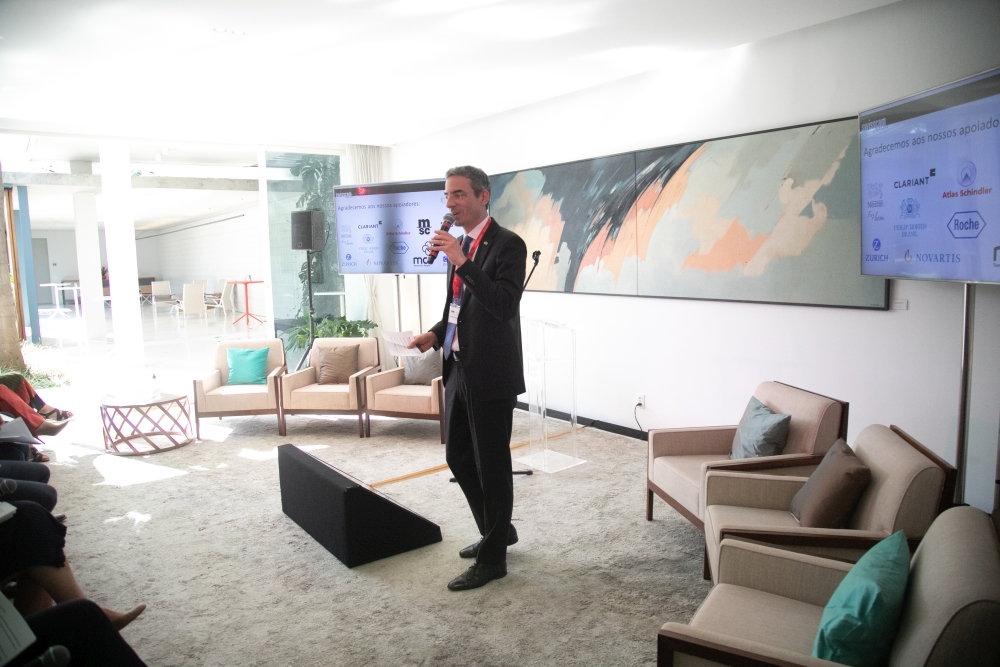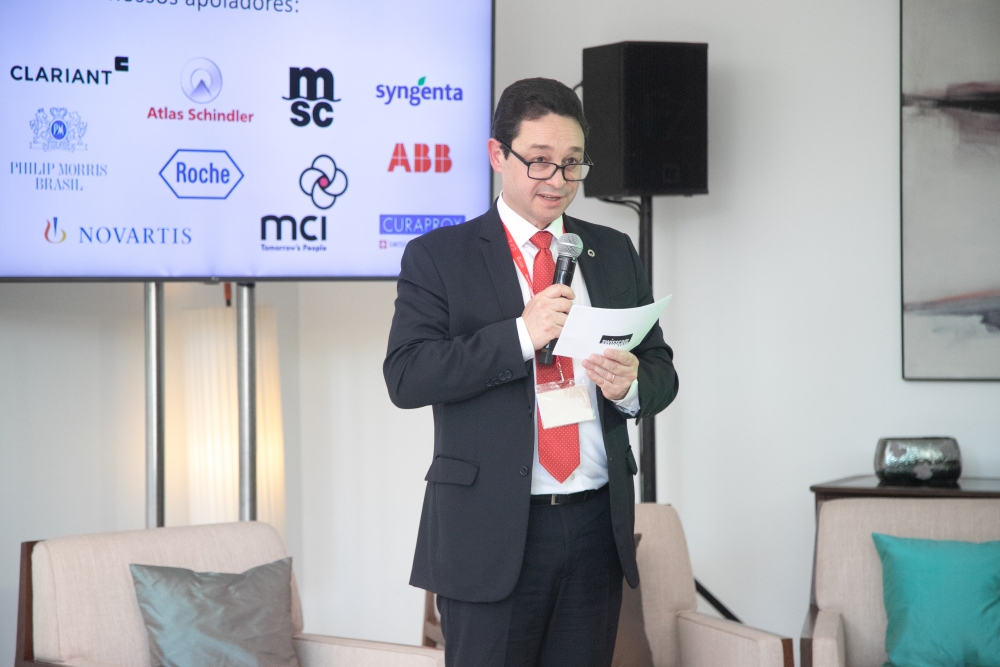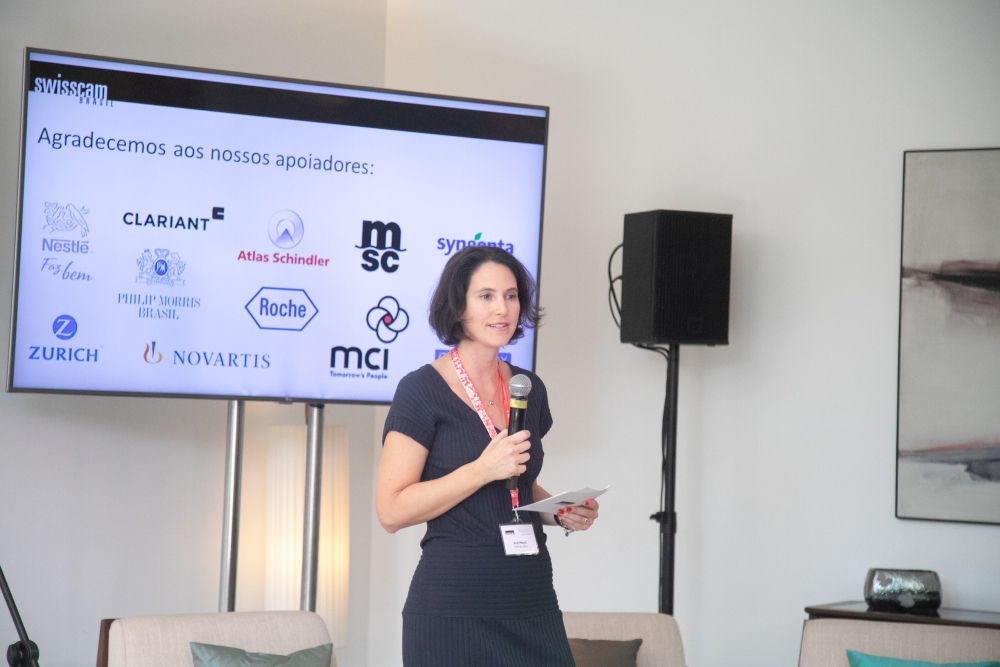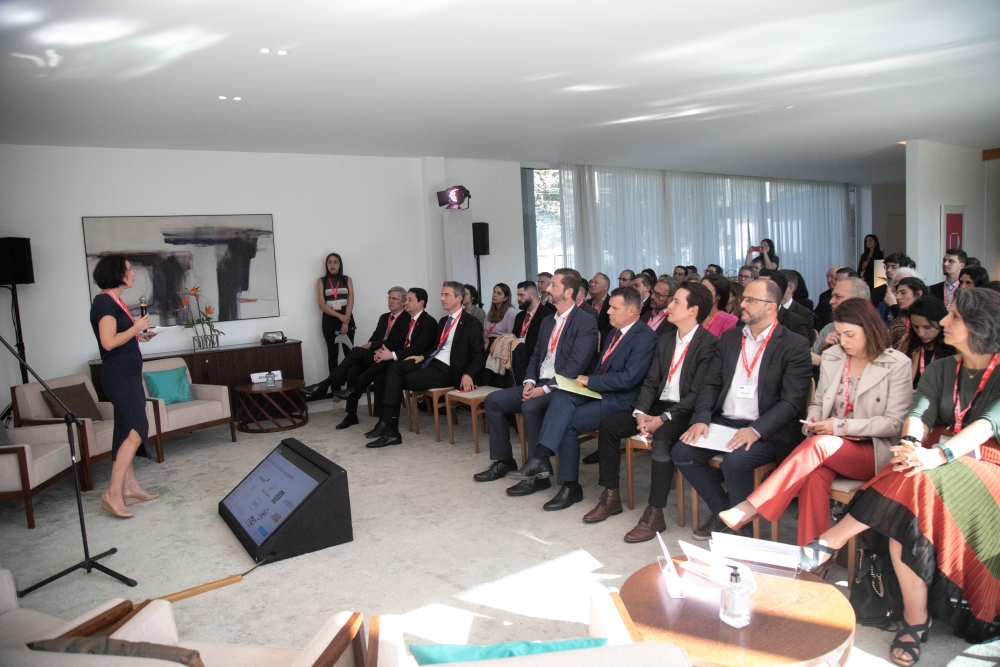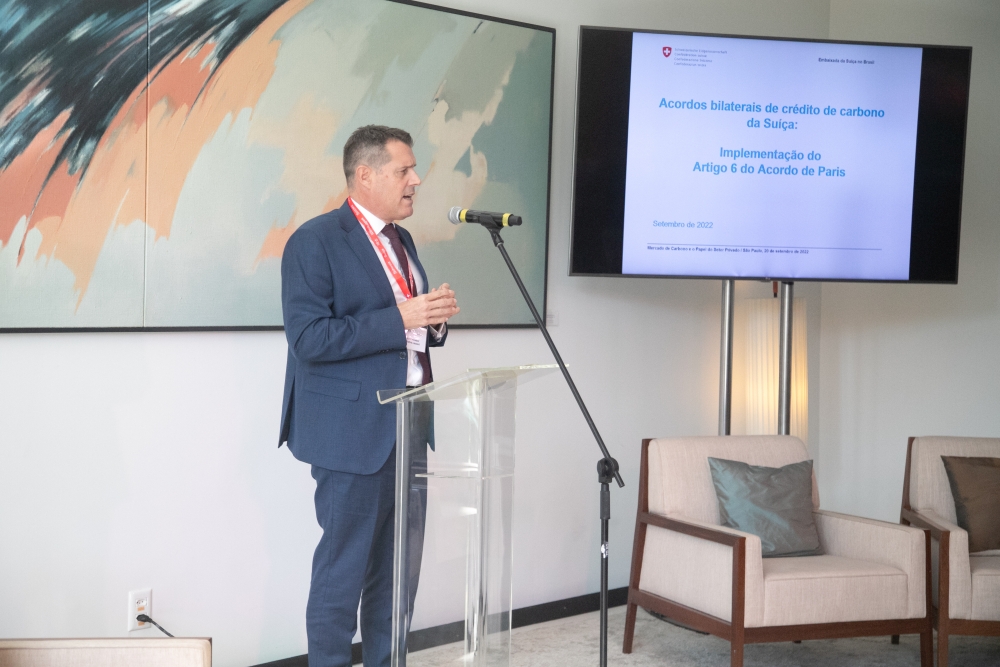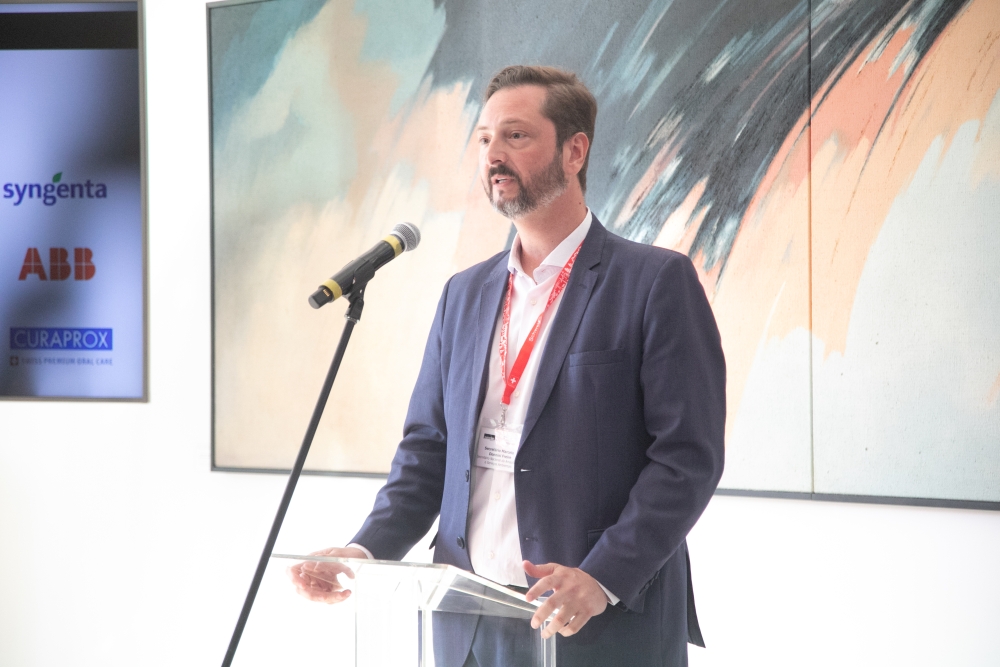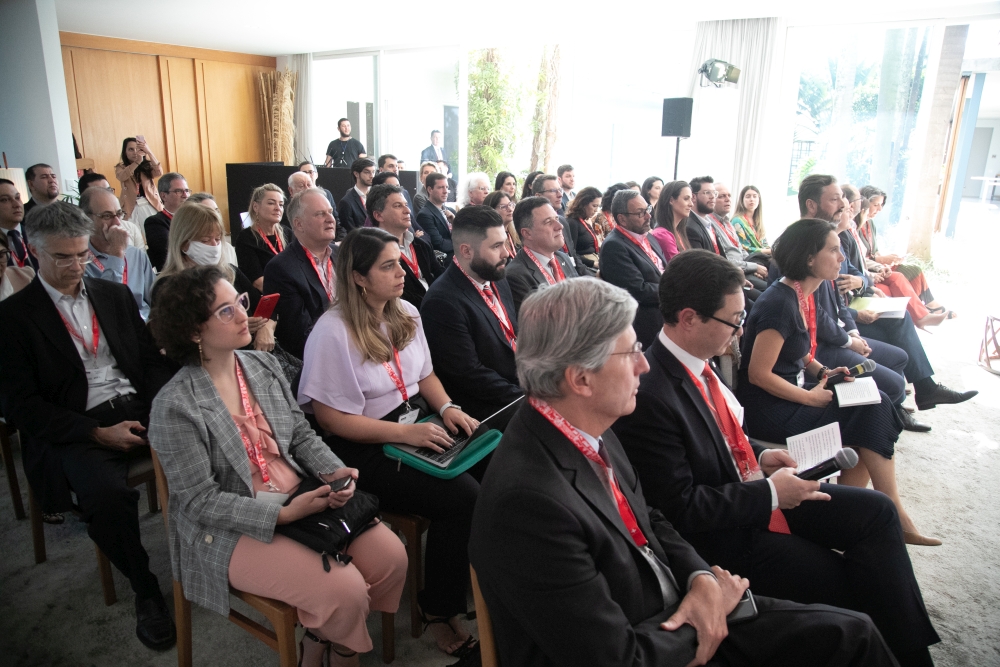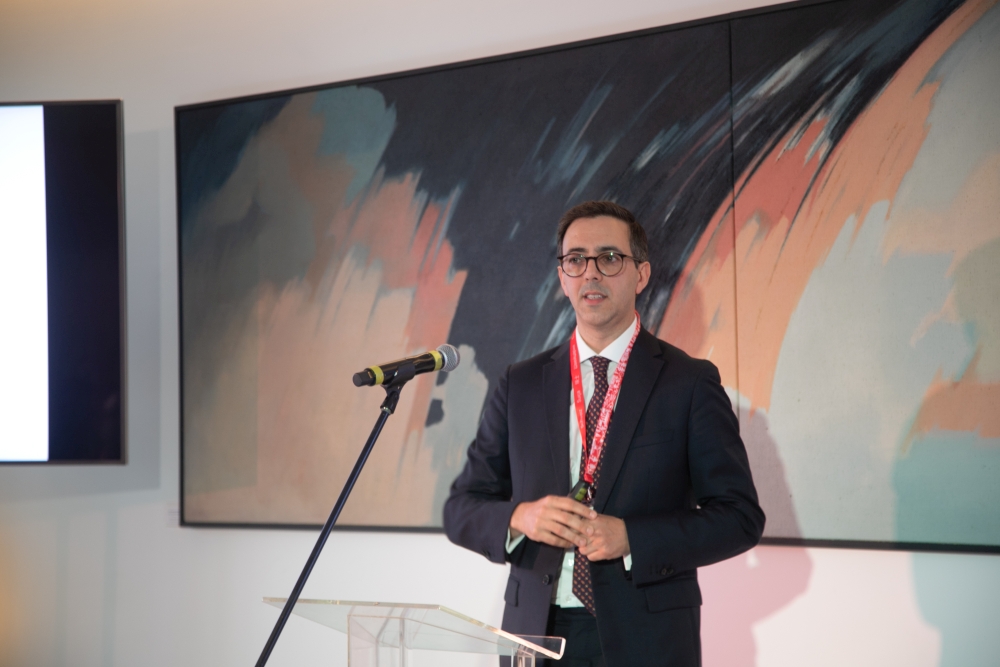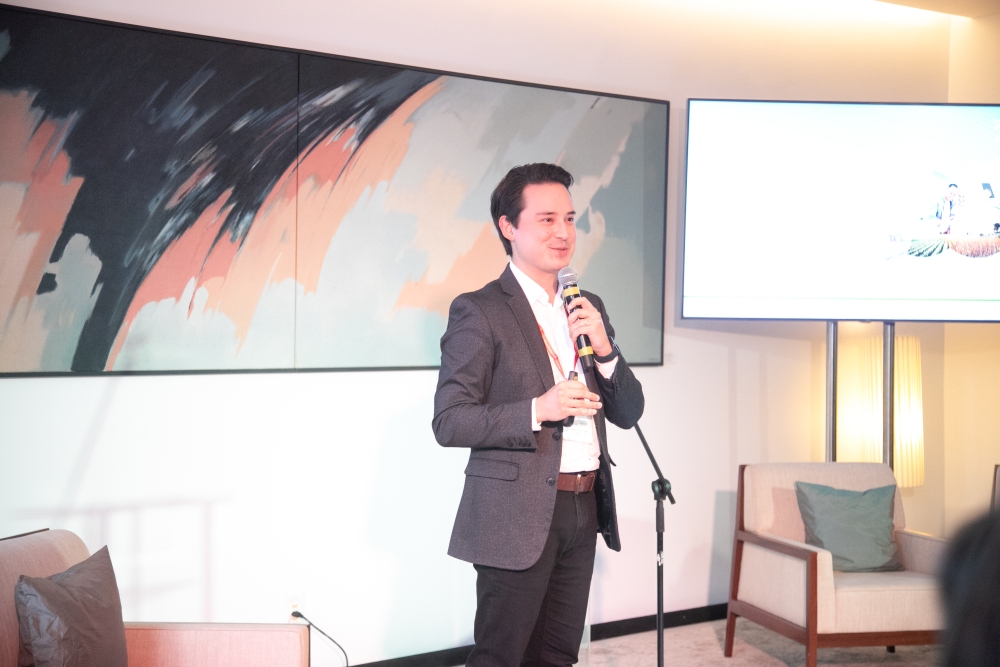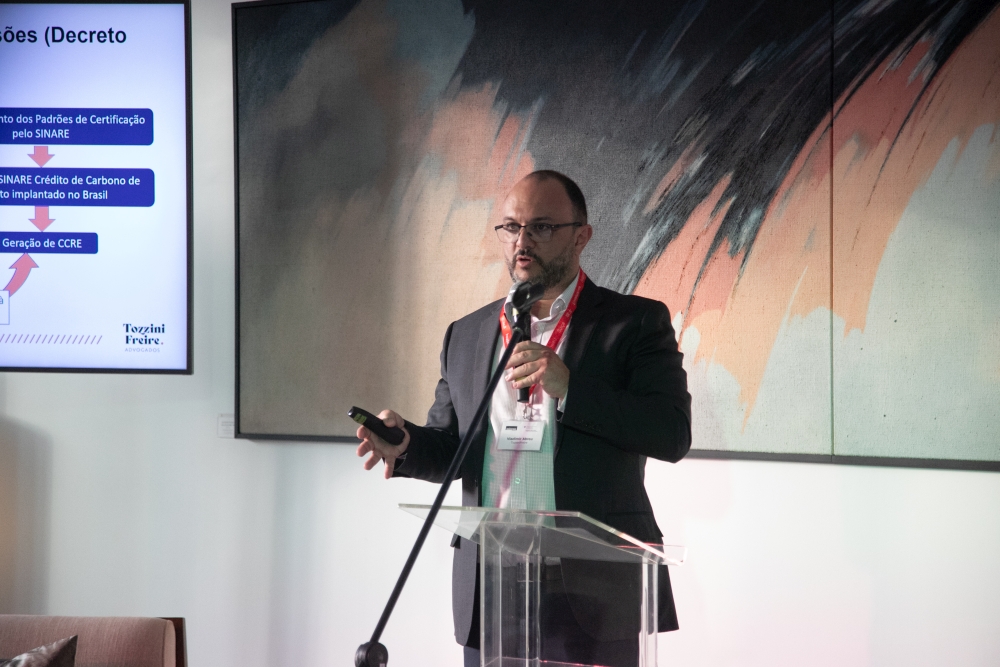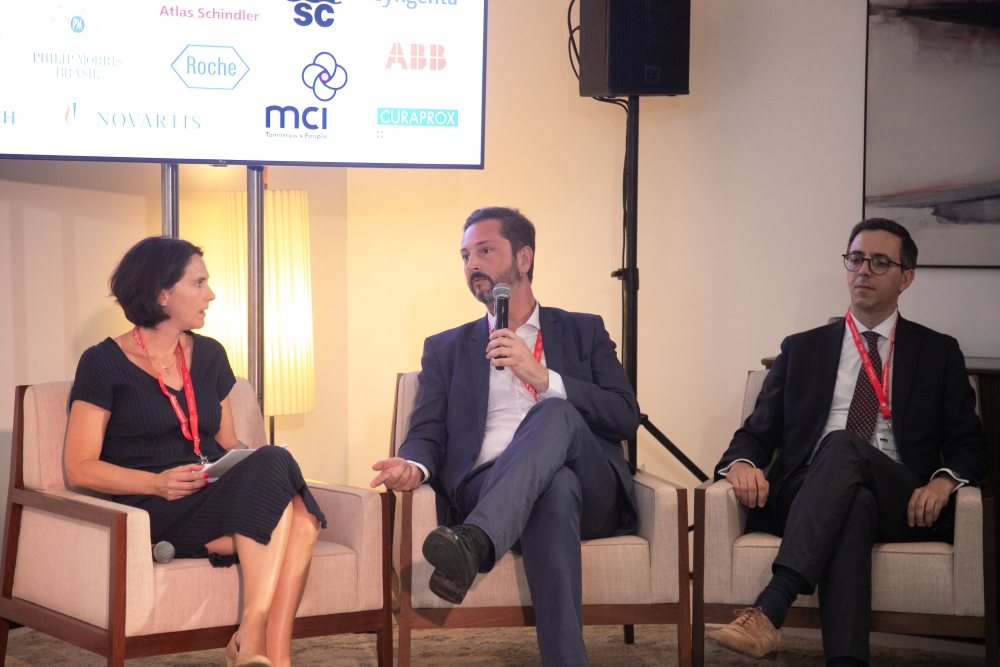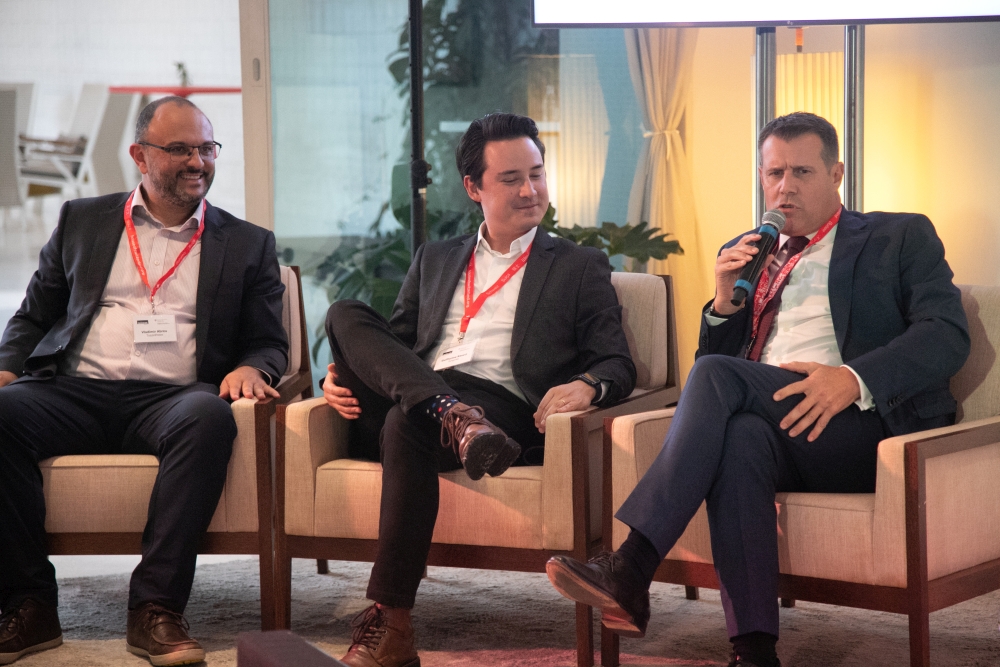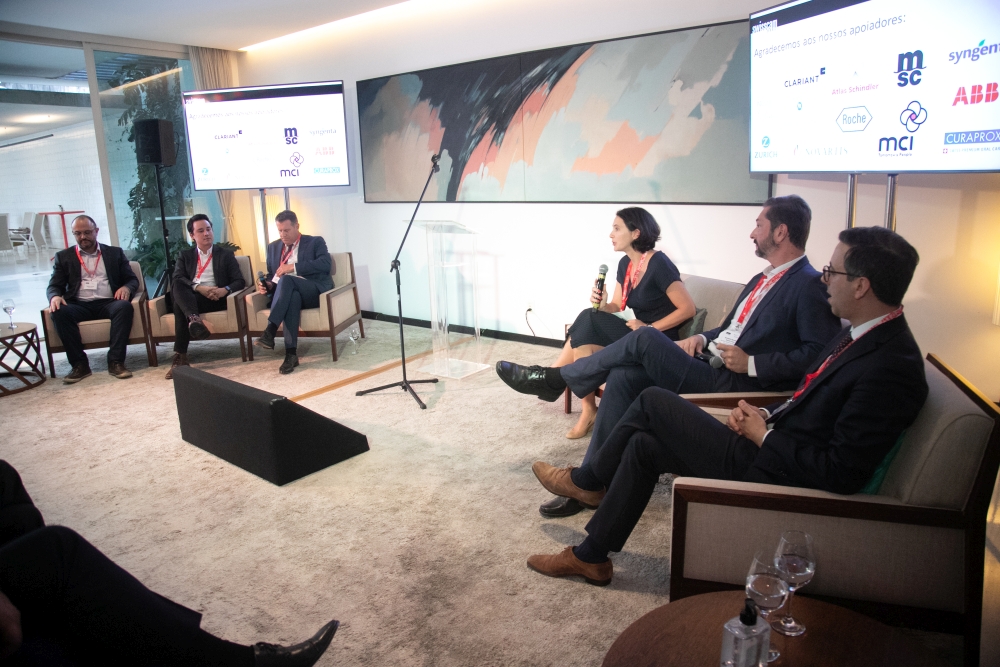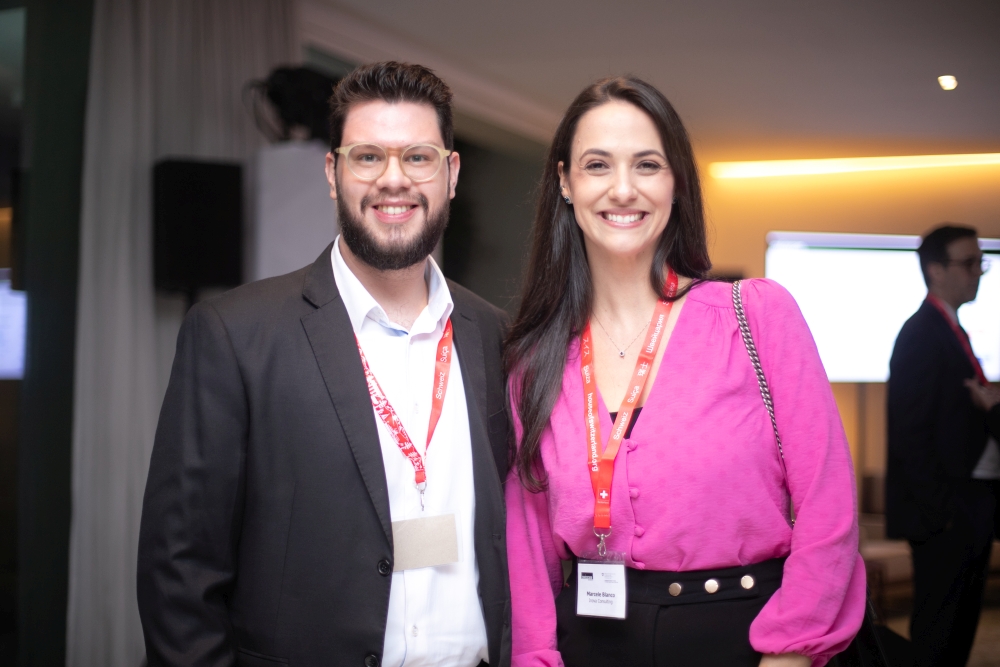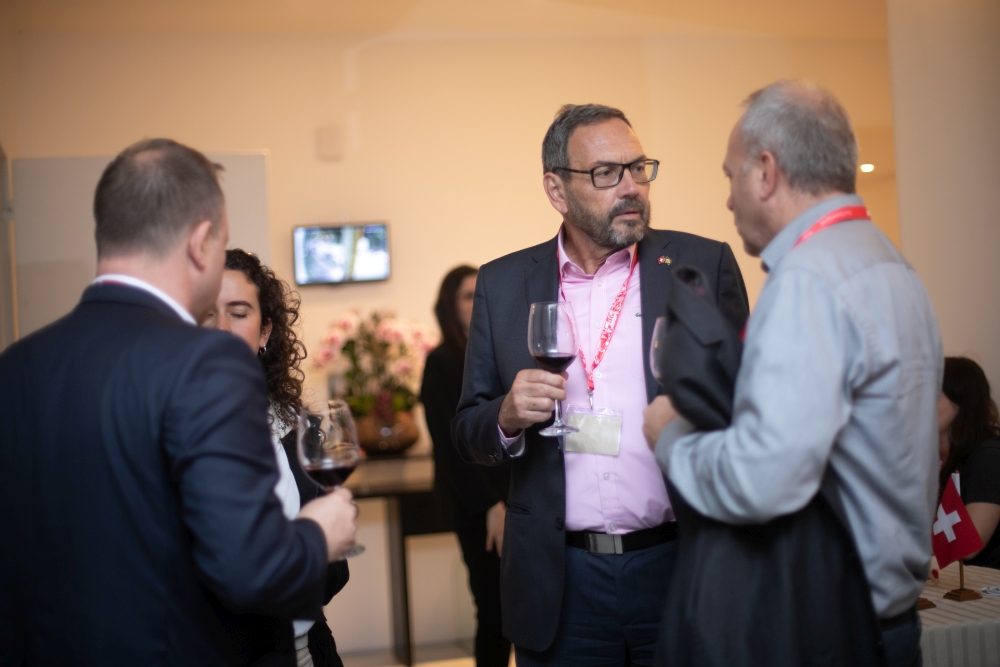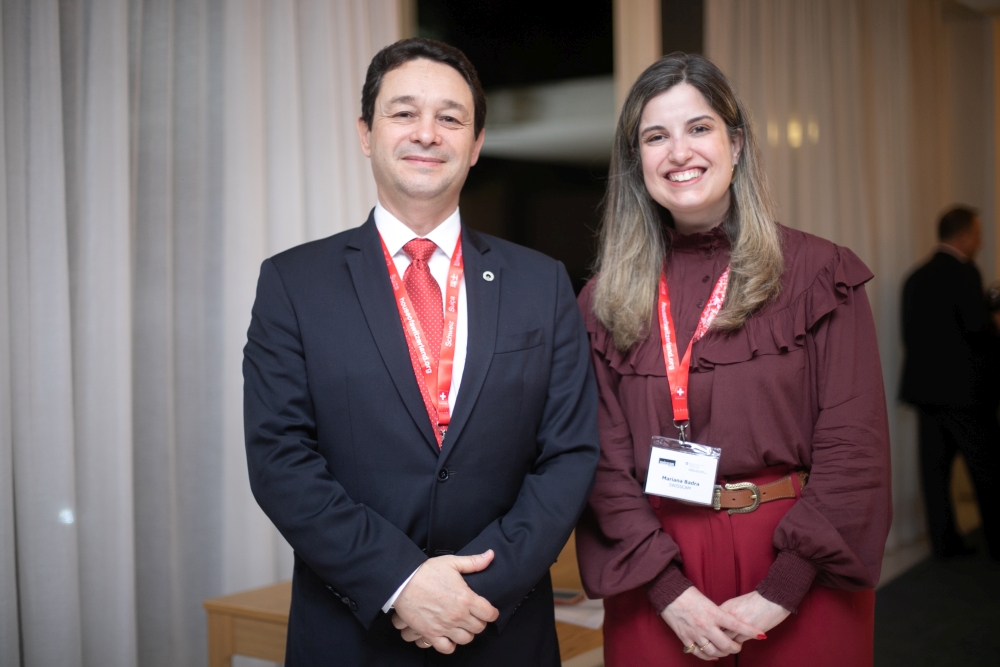by Cibele Lana, from Ekos Brasil Institute
On September 20, 2022, public, business, legal and civil leaders gathered at the official residence of the Consul General of Switzerland in São Paulo, Pierre Hagmann, at the invitation of the Swiss-Brazilian Chamber of Commerce (SWISSCAM), to discuss “ The Carbon Market and the Role of the Private Sector”. The event was exclusive to SWISSCAM member companies with the aim of helping them to take on a more prominent role in the Brazilian carbon market.
In addition to the president and vice president of SWISSCAM, Flávio Silva and Ana Moeri, respectively, the Swiss Ambassador Pietro Lazzeri, the National Secretary for the Amazon and Environmental Services, Marcelo Donnini Freire, the Executive Director of the UBS BB Investment Bank and Head of ESG, Frederic de Mariz, the Global Manager of Digital Sustainability at Syngenta, Guilherme Raucci, and the Partner at Tozzini Freire Advogados, Vladimir Abreu, were present as panelists.
Ambassador Lazzeri led the opening by sharing Switzerland’s pioneering spirit in implementing Article 6 of the Paris Agreement in bilateral cooperation agreements with countries such as Ghana, Peru, Senegal, Thailand, among others. According to the Ambassador, these agreements complement Switzerland’s internal efforts to achieve its Nationally Determined Contribution (NDC) targets, but are a way to accelerate the reduction of emissions.
“In these agreements, the two governments authorize the transfer (of carbon credits) with a guarantee of recognition to investors, ensuring that double counting does not occur and formalizing respect for human rights, in addition to a set of criteria for environmental integrity and sustainable development. ”, he explains when mentioning the agreement with Peru. In the case of Brazil, the Ambassador emphasized the enormous potential that exists in relation to the carbon market. In this context, Switzerland is in dialogue with the Brazilian authorities and the various actors interested in this issue, in order to share good practices and experiences. The possible approval of a specific law by the Brazilian Congress would be a significant step even in the perspective of possible international cooperation.
The National Secretary for the Amazon and Environmental Services, Marcelo Donnini Freire took the opportunity to start his speech: “I hope we will have a bilateral agreement with Switzerland”. Then, he argued that the current government has advanced in the carbon agenda and in the Payment for Environmental Services (PSA), especially emphasizing the progress of the agenda at the executive level with the publication of Decree 11,075, in May 2022. “The Decree goes to the limit of what we could do, according to the 2009 legislation – the National Policy on Climate Change – which says that the main sectors of the economy must have their mitigation plans established. We went to the limit to advance in the construction of the national infrastructure for this ”, he emphasizes.
The event also featured the financial sector’s view on the Carbon Market theme, with the presence of Frederic de Mariz, Executive Director of the Investment Bank UBS BB and Head of ESG. Mariz highlighted that the achievement of the goals and commitments foreseen, either for 2030 or for 2050, will only be possible with partnerships and public policies, as established by SDG17 – Partnerships and Means of Implementation – and emphasized that banks have a key role in these relationships when intermediating the raising of foreign capital for honest and ethical Brazilian initiatives.
The executive pointed out that, on the part of investors, the demand for funds increasingly aligned with ESG purposes is growing and companies that issue bonds in the market need to adapt to this demand. “On the part of the issuer, especially the Brazilian issuer, (…) the debt market with some ESG seal has tripled. It was a record. 47% of this ESG seal debt was green-sealed, which is what attracts the most interest.”
Mariz, who is also a professor of Sustainable Finance and Impact Investment at Columbia University (USA), pointed out Brazil’s potential to be a leader in sustainable finance. And he indicated guidelines for this to happen: standardization of carbon credits, dissemination of knowledge (advocacy), publications in English, gaining a voice in the market and understanding that it is necessary to open the topic of carbon beyond credits, also encompassing biodiversity and socio-environmental co-benefits.
Then, Guilherme Raucci, Global Manager of Digital Sustainability at Syngenta, demonstrated with numbers and cases how the agribusiness sector has great responsibility in the carbon market. In fact, the food sector, for example, is responsible for about a quarter of global greenhouse gas emissions, but it can also contribute to the decarbonization of production chains. “There are opportunities for green finance, payment for environmental services, as well as carbon linked to products. In the food sector, we already see companies working with this concept: low-emission meat, low-emission soy, etc. (…) And despite the scope 3 problem, we can help producers to produce commodities with lower emissions”.
For opportunities to advance, it is essential that regulation also advance. Therefore, the last explanation of the day dealt with “Regulation of the Carbon Market in Brazil” with the contribution of lawyer Vladimir Abreu. He highlighted important points of Decree 11,075 such as the creation of a single credit registry (SINARE). “SINARE is a positive point because today we are subject to foreign standards. This brings legal certainty. The registration here also helps in non-double counting”.
Abreu also presented the potential that the regulation of the Carbon Market can bring to Brazil. “The Law brings the benefit of attracting foreign investment (legal certainty) and the pricing of non-climatic attributes and environmental safeguards”, he concludes.
The event ended with a short debate with questions from the participants, a cocktail with all guests and with Swiss wine.
Photos: Carol Luz

